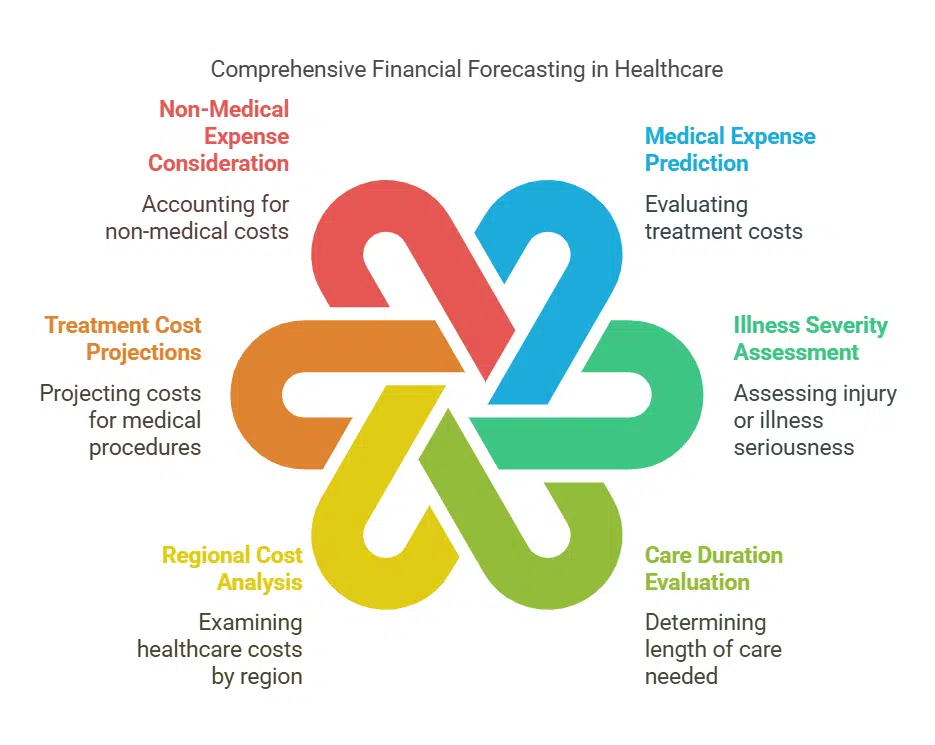Serious injuries and chronic medical conditions often come with long-term financial burdens. In San Antonio, TX, individuals facing extensive medical treatment, rehabilitation, and ongoing care must plan for future expenses to ensure they receive the proper support. Estimating these costs accurately is crucial, especially when seeking compensation in a personal injury or disability claim. This is where a life care planner plays a vital role.
A PLCP future medical expenses expert evaluates a patient’s long-term healthcare needs, factoring in doctor visits, therapy, medication, assistive devices, and home modifications. By working closely with medical professionals, they develop a detailed cost projection that helps injury victims secure the compensation they need. Whether in settlement negotiations or courtroom testimony, a life care planner provides critical insight into the financial impact of long-term medical care. Let’s explore how their expertise ensures fair and accurate compensation for future medical expenses.
Grasping the Purpose
Life care planners are experts who focus on assessing the long-term needs of people with conditions or disabilities. Their main job is to develop a strategy detailing the healthcare services and assistance needed. This strategy goes beyond scheduling appointments and covers various services such as therapy, medications, specialized equipment, and even adjustments to one’s home. In this way, life care planners guarantee that individuals receive care that suits their situations perfectly.
The Evaluation Procedure
Crafting a life care plan starts with an assessment process. Life care planners engage in interviews and examine medical records while consulting healthcare professionals to grasp a complete picture of the individual’s health situation and future needs. This phase includes assessing the health condition, cataloging future issues, and outlining essential interventions. By compiling this data, life care planners can develop a plan that addresses forthcoming requirements and tackles unexpected obstacles.
Determining Healthcare Expenses
Life care planners play a crucial role in predicting medical expenses by evaluating the seriousness of the illness or injury, how long care will be needed, and examining healthcare costs in different regions. They rely on their knowledge to project costs associated with treatments, medications, and rehabilitation services while accounting for non-medical expenses such as transport and caregiving to provide a thorough financial forecast.
Thinking About the Insurance Aspects
Life care planners often collaborate closely with insurance experts in situations involving personal injury cases where life care plans play a crucial role as valuable evidence in court proceedings by outlining individuals’ medical requirements and expenses to help ensure they receive fair compensation and navigate insurance policies effectively to access entitled benefits.
The Emotional Aspect
Preparing for healthcare needs can be emotionally impactful for individuals and their loved ones. Life care planners go beyond offering assistance—they also provide emotional comfort to those involved. By creating a defined and thorough strategy in advance, these experts play a significant role in easing worries and doubts. Their advice enables people to make choices regarding their path, instilling a feeling of empowerment and assurance.
Challenges Faced by Life Care Planners
Life care planners face difficulties in their profession despite their knowledge and skills. They need to update themselves on the advancements in healthcare and treatment options. Moreover, estimating future expenses proves challenging due to inflation and shifts in healthcare regulations. Nevertheless, life care planners are dedicated to delivering precise and trustworthy plans for their clients.
The Importance of a Life Care Plan
Having a life care plan is like having a guide for people dealing with medical requirements. It details the essential actions to take, estimates expenses, and gives a path forward. This guide is important not only for the person themselves but also for their family and caregivers, who are key members of the support network. With a thought-out plan, everyone concerned can face what lies ahead with certainty and readiness.
Conclusion
Life care planners play a key role in projecting healthcare expenses and assisting individuals and families in effectively navigating the intricacies of healthcare planning. Their specialized knowledge guarantees that individuals dealing with long-term health issues receive care that fits their requirements. By working with clients and conducting evaluations and careful planning strategies, these experts offer guidance and reassurance in helping them navigate the sometimes overwhelming medical costs.






































